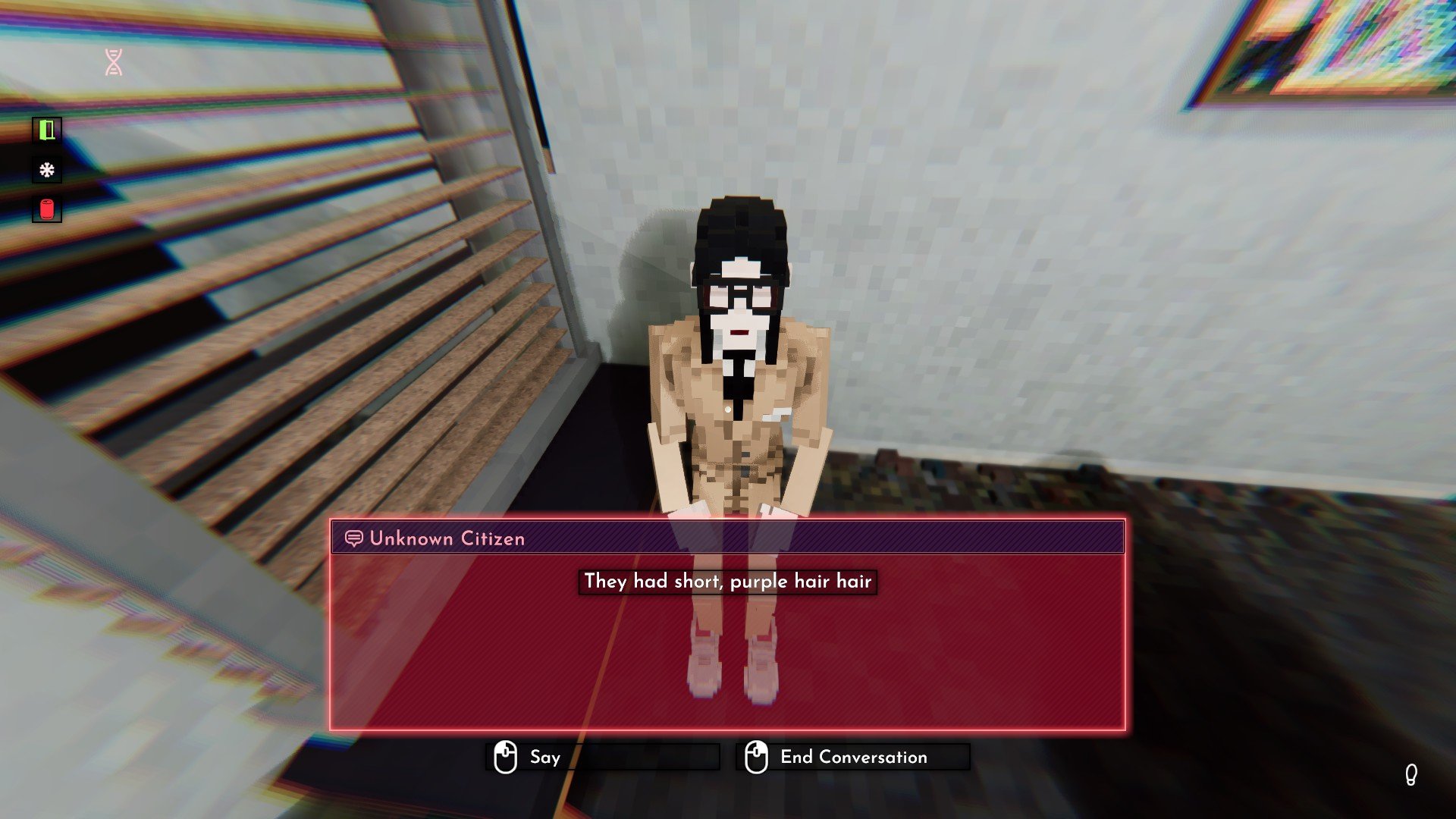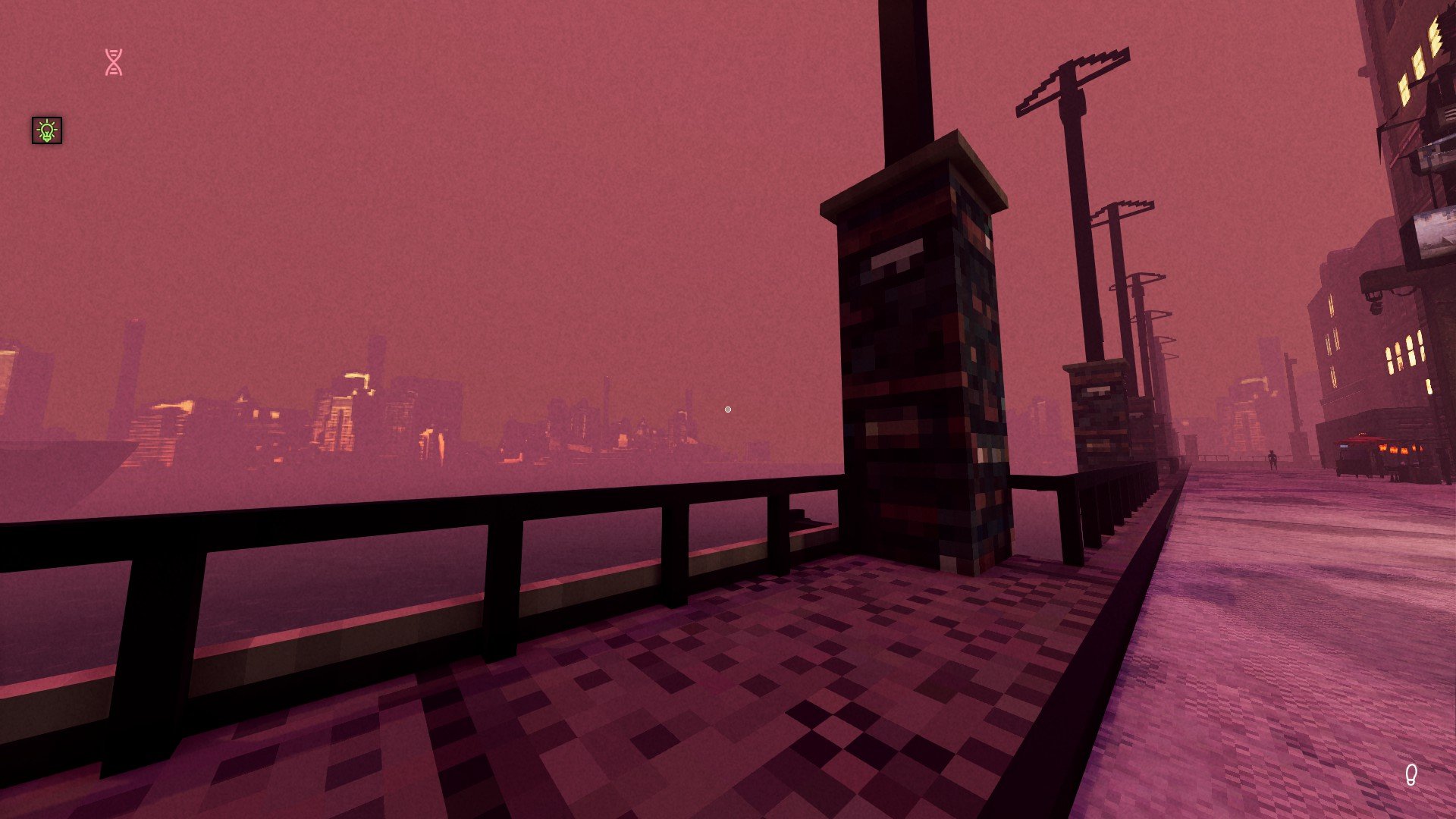Shadows of Doubt Early Access Review
Shadows of Doubt
Developer: Cole-Powered Games
Publisher: Fireshine Games
Platforms: PC
Release Date: April 24, 2023 (Early access, information on the Steam page claims “about six months”)
MSRP: 19.99 USD
By now, Shadows of Doubt is a well-established title in what looks to be a fabulous summer of immersive sims and shooters. Its six-month early access period shows it growing by leaps and bounds (part of the reason for this review being a little late is that I wanted to give it a bit of time to cook, so to speak), and its unorthodox focus and procedural story-generation engine make it stand out even among the high number of narrative-generation games coming out these days. Unfortunately, as wonderful as Shadows of Doubt is, it’s worth waiting for a full release rather than snapping it up in early access. The high number of moving parts and that same unorthodox approach to things means it should take all the time it can to shine.
You are a former police detective in a dystopian island city, laid off by the Starch Kola Enforcers Program, a corporate-run police force installed by the corporate-owned government. In the middle of a night of troubled sleep, you awake to the ring of your phone. Upon answering, you’re greeted by silence on the other end of the line and a note shoved under your door urging you to investigate someone’s apartment. You arrive on the scene, finding a corpse. There’s been a murder. The Enforcers are on their way and react to trespassers with lethal force. A conspiracy is brewing. The same strange video tapes and cryptic notes show up at crime scenes and in suspects’ apartments. You’re down on your luck, recently evicted, and have to dodge both enforcers and the criminals who are on to you as you attempt to solve crimes and take odd jobs. Good luck. You’ll need it.
Shadows of Doubt is best described as a “detective/crime immersive sim.” You take cases from various notice boards around the city, gaining money and social credit for everything from petty theft to corporate hatchet-jobs. In the process, you get embroiled in conspiracies, murders, and a shadowy “paradise” people retire to when they have enough social credit. As you grow in both reputation and skillset, you unlock upgrades called “sync-discs,” have an easier time getting information, and get ever closer to finally leaving the rain-soaked concrete pilings you call a home. From a first-person perspective, you chase down leads, manage your time and needs, and try to figure out your cases in a procedurally generated city. You also get to customize your own character, apart from their backstory.
The password to a secret gun store Credit: The Gamer’s Lounge/Screenshot
It’s remarkable how much detail and how many moving parts go into Shadows of Doubt. The game procedurally generates the entire city from the “new game” screen, complete with citizens, schedules, buildings, and a whole ton of relationships. Over the course of one case, I practically traversed the city (and if you don’t play on the largest city size, well, you’re missing out) and met a ton of potential suspects and leads, all chasing the same single thread. You can break into places, bribe informants, sneak into the Enforcer offices to steal files and weapons, crawl through vents, and even confront a suspect, arrest them, rob their safe, and then sell it all for a tidy profit. It’s wildly open in a very guided way, supporting a number of chaotic and careful play styles. The first time I turned off the lights in a room and the cameras stopped paying attention to me, I was hooked. You don’t normally see that level of detail in a game, where even minimal changes to the environment yield greater results, and knowing more about the city means you solve cases easier. Helping everything, a lot of your legwork is player generated, meaning you have to follow the leads and draw conclusions, even if you make the wrong ones.
Foggy day in post-global warming Tokyo Credit: The Gamer’s Lounge/Screenshot
It also looks great. The style, blocky voxels making up a neon and rain-soaked hellscape of a city, works perfectly with the retro-futuristic cyberpunk tone the game tries to strike. While the streets look a little similar at times (par for the course with a procedurally generated game), you get awesome neon signs standing out of the fog, and characters have an impressive level of distinction, with everything from styles of dress and cybernetic limbs on display. You can even learn a lot from what any given person has in their apartment or workplace— everything from medical issues to coworker relations are represented by items, emails, and a number of subtle details. There’s a lot going on, and the style never once gets in the way. It’s a fantastic presentation.
Fog billows up through a room Credit: The Gamer’s Lounge/Screenshot
The issues with Shadows of Doubt come down to polish. There are points where the game just doesn’t click right, whether it’s accidentally soft-locking yourself out of a murder case because you went to City Hall and grabbed yourself a case sheet before following the vague instructions to investigate a murder on a random street, or getting turned around because following an address waypoint leads to the wrong building. It’s frustrating, in a way, but that’s the reason the game’s in early access. It still needs a little more time to cook, to work out that polish and smooth out some of the rough edges. This isn’t a nitpick so much as a statement of fact. Even the most polished of games sometimes just needs a little time to cook. A little chaos is fine, in fact, it’s built into the game, but I’d wait until this one hits 1.0. It’s a great game, but when a great game has a crack, that crack’s all the more visible.
If you’re enticed enough and can weather the lack of polish, Shadows of Doubt is a fantastic game, an instant indie classic for fans of immersive sims, film noir, and weird dystopian adventures. While that’s the case, the game’s improved almost weekly in leaps and bounds, so it’s definitely worth the (relatively short at this point) early access cycle and hopping on with 1.0. Either way, check this out, especially as the unpolished version is a beautiful, impressive, and chaotic affair well worth your time.
The Good
- Brilliant dystopian-noir setting
- Unique voxel-graphic style
- Huge level of detail and freedom in the open world
- Large number of player options and open-ended gameplay
The Bad
- Literally the only bad thing about this is that it’s still in early access and could still use a little more polish
Final Score:








